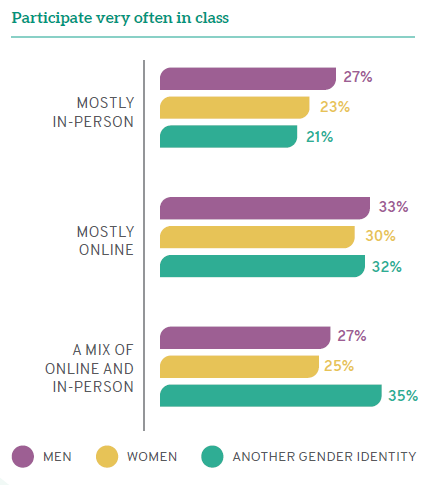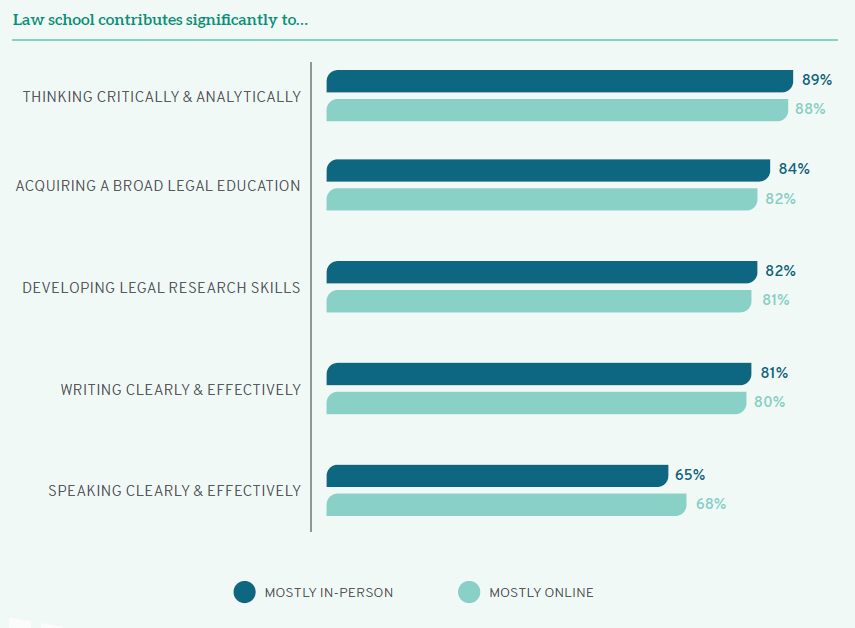Our last post shared some general findings about online learning from our 2022 Annual Results, Success with Online Education (pdf). In this post, we will share evidence that online classrooms appear to encourage a more diverse cross-section of students to participate in class discussions. We will also share reassuring signs that online law students are learning as much as their in-person counterparts.
Online discussions feature diverse voices
Online classes excel at inviting participation from a broader range of students than in-person classes. Men are equally likely to participate in class discussion and ask questions “often” or “very often” whether participating in person (60%) or online (61%). However, women taking mostly online courses are more likely to engage in class “often” or “very often” (58%) compared to women taking mostly in-person courses (53%). In fact, online courses appear to encourage all students to engage more intensely with class discussion. One quarter of students (25%) who take primarily in-person classes participate “very often” compared to 31% of students taking mostly online classes. There is a marked gender difference, with 23% of women participating “very often” in person but a full 30% participating “very often” online, and only 21% of those with another gender identity participating “very often” in person while 32% do so online. The online environment–perhaps because of the mechanisms for turn-taking or because it is more comfortable for students to volunteer– invites more voices to engage in the conversation.

Online students are learning as much as in-person students
Regardless of how they attend classes, most students are confident that they are developing crucial legal skills. Nearly 90% of online and in-person students are learning to think critically and analytically. More than four out of five online and in-person students say they are acquiring a broad legal education (82% and 84%, respectively) and developing legal research skills (81% and 82%, respectively). Interestingly, online students are more likely to be developing the ability to speak clearly and effectively, perhaps because online courses invite more participation from a diverse range of students. Thus, law school classes do not lose their intellectual rigor when they are offered in an online format.

Online law school classes can be highly successful and well-received by students. Many students who take most of their classes online are as satisfied—and sometimes more satisfied—than their peers who attend classes primarily in person. Furthermore, law students who attend classes via either modality are equally likely to feel confident that they are learning important skills that will help them succeed as legal professionals. Although the law school experience is unlikely to be primarily online again, the accelerated transition to offering online courses that occurred due to COVID-19 shows that the online law school experience can be as successful, enriching, and satisfying as the traditional law school curriculum.
